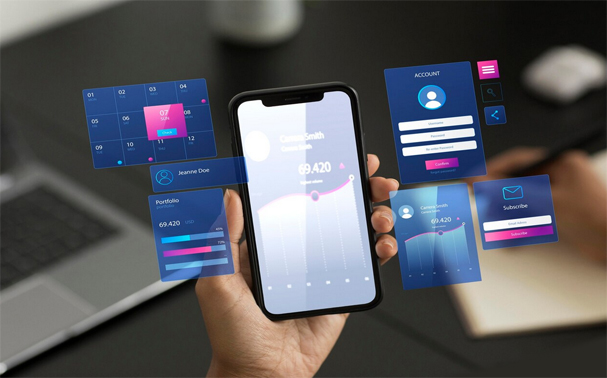
Mobile Proxy: Proxies come in various types, each with unique features. Different proxy types provide varying levels of anonymity and privacy, with some being more effective and reliable than others. For top-notch privacy and anonymity, mobile proxies are the best choice.
What is a Proxy Server?
A mobile proxy is easier to grasp if you first know what a proxy server is. A proxy is a middleman that directs internet traffic and gives all outgoing requests a new IP address. The proxy hides the real IP address, ensuring online anonymity and privacy.
Different proxy types use different IP addresses. A residential proxy gives you a residential IP address from Internet Service Providers (ISPs). ISPs typically give residential IP addresses to their customers. Ethically sourced residential proxies and IP addresses need consent from both the ISP and the customer. This is because traffic is routed through the user’s devices using an installed application.
Datacenter proxies use IP addresses linked to datacenters. These IP addresses come from strong datacenter servers, making them virtual. Residential proxies are hard to block, while datacenter proxies can be easily flagged and banned. Residential proxies are better than datacenter proxies, but mobile proxies are the best of all three.
What is a Mobile Proxy?
A mobile proxy sends internet traffic through mobile devices using mobile data from a telecom company. Mobile devices can include smartphones, tablets, and MiFi routers. These gadgets route traffic, so outgoing requests use the IP address given by the mobile carrier to the device.
Mobile carriers need to adopt new technologies and standards to serve their increasing number of customers. This is most evident in how they integrate IPv4 and IPv6 addresses. IPv6 addresses are plentiful and designed to take the place of the dwindling IPv4 addresses. IPv6 is newer than IPv4, offering a high level of trust and anonymity. These are mainly used in 4G connections. 4G mobile proxies are fast, secure, and offer better anonymity. 3G mobile proxies use IPv4 addresses.
The mobile carrier regularly changes the assigned IP address, enhancing privacy and stopping IP blocks. This is useful when mobile devices act as proxies. Check out this website for more info on mobile proxies and their benefits.
Mobile Proxy Types
There are two main kinds of mobile proxies:
Mobile proxies for free
These proxies imitate the internet connection from mobile carriers. In reality, they often aren’t connected to the internet through mobile devices that use mobile data. They are free, just like the name says. But they lack the privacy, anonymity, and security that mobile proxies provide.
Mobile proxies that require payment
These proxies send traffic through actual mobile devices. They offer strong anonymity, security, privacy, and protection.
Mobile Proxies: What They Do
Mobile proxies can be used for:
- Checking ads
- Managing social media
- Getting around geo-restrictions
- Research the market by checking prices, products, and competitor counts.
- Check reviews and monitor reputation
- Monitoring SEO, including keyword research
- Cookie blocking means stopping cookies from being installed. Mobile proxies can connect to the internet without saving cookies.
- Web scraping on a large scale
- This proxy type is useful in these cases because it offers great security, privacy, anonymity, and protection.
Benefits of Mobile Proxies
- They have a much bigger IP address pool – mobile proxies can use either IPv4 or IPv6 addresses.
- Mobile proxies provide better anonymity and privacy compared to datacenter or residential proxies. They are harder to block because the mobile carrier automatically changes the assigned IP address regularly.
- 4G mobile proxies are quick.
- They provide extra security since multiple users share the IP addresses, making it hard to identify you or your activity.
Cons of Mobile Proxies
- Mobile proxies cost more than datacenter and residential proxies.
- Shared IP addresses were assigned, which could pose a privacy risk.
- These proxies can be a security risk because many people don’t have anti-malware software on their mobile devices.
- Mobile proxies perform worse than datacenter proxies, which use strong, high-performance servers.
In summary
Mobile proxies are better than datacenter and residential proxies. They provide better security, privacy, anonymity, and protection from IP blocks. This has an added cost – mobile proxies cost more.




